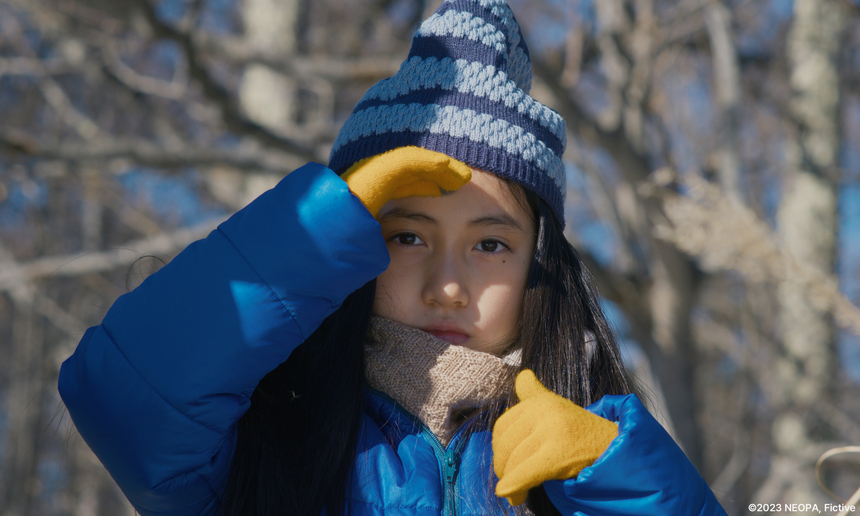Busan 2023 Review: EVIL DOES NOT EXIST Reveals a More Ominous Side to DRIVE MY CAR Director
Ryusuke Hamaguchi won the Grand Jury Prize at Venice for his follow-up to Drive My Car

Japanese director Ryusuke Hamaguchi follows up his Academy Award winning Drive My Car with this sombre and deceptively chilling tale of urban sprawl’s encroachment upon a remote countryside community. Originally conceived as a video piece to accompany the music of composer Eiko Ishibashi, the collaboration expanded into a full-blown feature film that steers the director’s oeuvre in a bold new direction.
As Japan emerges from the grip of the coronavirus pandemic, a Tokyo-based company launches plans to develop a glamping site in the picturesque mountains outside the city. A pair of representatives, Takahashi (Ryuji Kosaka) and Mayuzumi (Ayaka Shibutani), arrive to present their proposal to the local residents, who are uniformly opposed to transforming their self-sufficient village into a tourist site for ignorant city folk.
In particular, local Jack-of-all-trades Takumi (Hitoshi Omika) voices his concerns that the campsite’s septic tank will pollute the village’s natural water supply, while the lack of a full-time caretaker might lead to unsupervised campers inadvertently causing forest fires or otherwise damaging their fragile eco-system.
Frustrated by the lack of support from the locals, and his superiors’ unwillingness to compromise, Takahashi hatches on a plan to offer Takumi the position of caretaker, positioning him as a middle-man between the developers and the villagers.
Hamaguchi has never been in any rush to tell a story, but Evil Does Not Exist emerges as his shortest feature film since he came to international attention. Nevertheless, the film remains a languid and unhurried portrait of an unspoilt enclave, where a self-sufficient population eke out a modest yet deeply satisfying and rewarding existence. Hamaguchi takes great pleasure in illustrating precisely how Takumi collects fresh water from the mountain streams and transports it back to the village, as well as how he chops firewood with an effortless expertise (praise must be given to Omika here for his deft axe-wielding skills).
A largely laconic presence, we steadily build a picture of Takumi as a man by observing him as work, as well as his interactions with the natural world, other villagers, and his young daughter, Hana ( Ryo Nishikawa). Her presence raises more questions than the film answers, but her energy and inquisitive nature hint at a bright future for the next generation of townsfolk, as well as representing an applaudable focus for the relentless efforts of the admittedly somewhat absent-minded Takumi.
Rather than painting them as greedy corporate villains, Hamaguchi designates plenty of screen time to Takahashi and Mayuzumi, a pair of straight-forward well-meaning urbanites with their own struggles and ambitions. During their long drives to and from Tokyo, they get to know one another better, and both voice their lack of passion for their current vocations and yearnings for a better life.
Indeed, the villagers are not stubbornly averse to the development of a glamping site, provided it is done in a respectful and cooperative manner. Much like the deer who populate the surrounding woodlands, they are mostly a timid community eager to keep their distance from the outsiders, provided they do not feel that their home or family are being threatened.
Ishibashi, who previously provided the score for Drive My Car, secures “original concept” and “planning” credits this time out, as well as delivering an eerily haunting musical backdrop. Right from the opening tracking shot of treetops standing undisturbed on the mountain side, her unnerving compositions punctuate the silence, unsettling the viewer and forewarning us that all is not well in this seemingly idyllic locale.
While these premonitions of disharmony ultimately do come to bear, along the way, Hamaguchi revels in the mundanity of a simple rural existence punctuated by moments of wholesome, beautifully orchestrated humour that serve to humanise both sides of this most civilised of conflicts. That is until, as the film’s title ironically suggests, something altogether more primal rises to the surface.

Do you feel this content is inappropriate or infringes upon your rights? Click here to report it, or see our DMCA policy.






